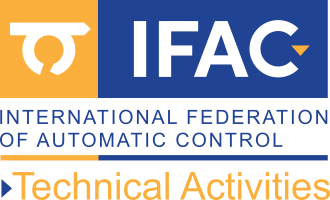Scope
The goal of the technical committee on Computers for Control is to coordinate and promote technical activities related to computer & control synergies. It focuses on new system architectures (Software- and Hardware) and model-based engineering methods for automation systems. This includes topics of information modelling (e.g. simulation models, meta-information, semantics, quality and identification) as well as software structures for decentralized (e.g. agents), modular and flexible systems. An overall focus is on the engineering tools, methods and processes that have to follow modern IT/OT-Security aspects as well as security by design paradigms. All focused topics also need to be seamlessly included into higher level education methods which is a working group topic.
TC 3.1 focuses on all aspects, among others, of:
- Cyber-physical systems and digital twins including advances in software and hardware architectures,
- Architectures and Strategies for the Industrial Internet of Things,
- software engineering related to the architectures of automation systems and functional safety,
- information modeling in the context of advanced meta-models for a seamless engineering and operation of automated systems, including formal, semantic and architectural quality aspects,
- IT/OT-Security methods and architectures for automation systems,
- execution platforms including multi-core, real-time operating systems, virtualization layer for mixed-criticality systems and networks, as well as
- advanced education methods in the field of automation technologies.
Special interest of the committee is to promote the application of these methods, techniques, and platforms in different application fields such as, but not limited to, industrial automation systems, process control, robotics, logistics, autonomous systems, healthcare, home automation or energy optimization.
Keywords:
- Cyber physical systems and Industrial Internet of Things
- Information models and Digital Twins
- Software and hardware architectures
- Control techniques for computer systems
- Software engineering for real-time control: Modeling languages (UML, SysML, domain languages), verification & validation
- Model- & simulation-based engineering
- RT networks: protocols, wireless, ......
- Development of critical systems: dependability, fault management, Verification & Validation & Certification
- Platforms for computer control: multicore hardware platforms, real-time operating system, scheduling, virtualizacion layer
- Safety & IT/OT-Security
- Model based engineering in automation: SysML, PLCopen XML interface, AutomationML

